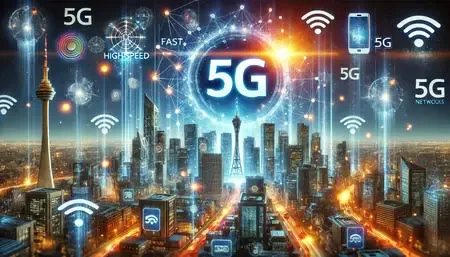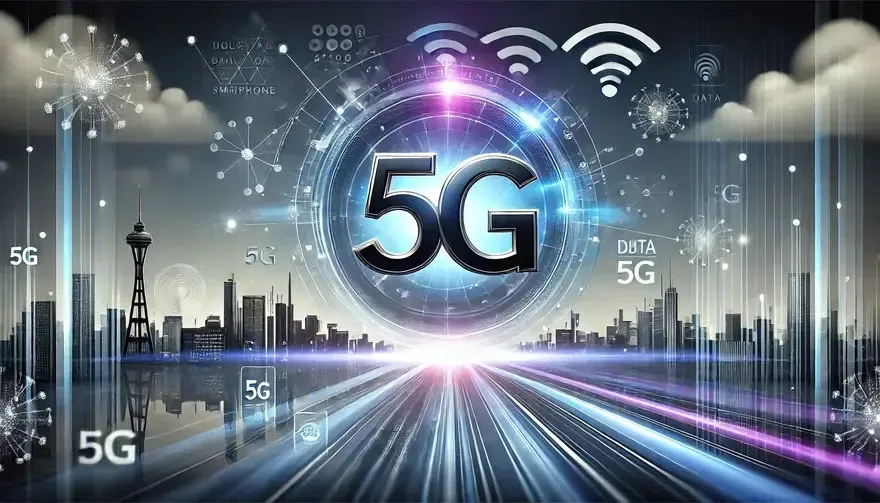
5G Technology: How It Is Changing Smartphone Usage
The rapid development of mobile technology has significantly transformed the way people interact with digital services. With the advent of 5G networks, this transformation is accelerating at an unprecedented pace. Faster speeds, lower latency, and enhanced connectivity are redefining smartphone usage, influencing everything from gaming and streaming to online transactions. This shift is particularly relevant for users of mobile applications, including online casino platform Quigioco, where seamless performance is crucial. 5G technology is not just an incremental improvement over 4G but a game-changer that enables new possibilities. It impacts both individual smartphone users and entire industries by fostering new digital experiences. As more countries and telecom providers expand their 5G infrastructure, smartphone users worldwide are beginning to experience the benefits of this next-generation network.
What Is 5G and How Is It Different from Previous Generations?
5G, or the fifth generation of wireless technology, represents a major leap forward from its predecessors. While 3G allowed basic mobile internet browsing and 4G brought about high-speed data for streaming and gaming, 5G takes connectivity to an entirely new level. It offers significantly higher speeds, reaching up to 10 Gbps, which is nearly 100 times faster than 4G. This enables instant downloads, buffer-free streaming, and ultra-responsive online interactions. Latency, the delay between sending and receiving data, is another area where 5G excels. While 4G networks typically have latencies of around 50 milliseconds, 5G reduces this to as low as 1 millisecond. This means real-time responsiveness, which is particularly important for applications like mobile gaming, video conferencing, and financial transactions. Another key difference is network efficiency. 5G can support a much larger number of connected devices per square kilometre compared to 4G. This is essential for the growing number of smart devices, from wearables to smart home systems, ensuring stable and reliable connections even in crowded areas.
The Impact of 5G on Mobile Internet and Everyday Smartphone Usage
For everyday smartphone users, 5G enhances the mobile internet experience in several ways. The increased speed means web pages load instantly, and users can stream 4K videos without buffering. Cloud-based applications also benefit, as they can operate with minimal lag, making remote work, online gaming, and virtual reality experiences more seamless. One of the biggest advantages is seen in mobile gaming. Online casinos like Quigioco app rely on fast and stable connections to deliver real-time betting experiences. With 5G, issues like slow loading times and connection drops become a thing of the past, providing a smoother and more engaging gaming session. Additionally, 5G expands the potential of augmented reality (AR) and virtual reality (VR). These technologies require vast amounts of data to be processed in real time, something that 4G struggles to handle efficiently. With 5G, AR applications, such as enhanced casino gaming environments or interactive shopping experiences, become more viable and widespread.

How 5G Is Changing Mobile Apps and Services
Mobile applications are evolving rapidly with the rise of 5G. Faster data transfer allows developers to create more complex and feature-rich applications without worrying about performance issues. Cloud gaming services, where high-end games are streamed rather than installed on a device, are becoming more accessible thanks to 5G’s reduced latency and higher speeds. The online gambling industry is also benefiting from these advancements. The Quigioco app, for example, can offer a more immersive user experience with high-definition live dealer games and real-time betting updates without delays. 5G’s reliability ensures that mobile casinos can deliver uninterrupted services, making them more appealing to users who rely on seamless gameplay. Furthermore, industries such as healthcare and finance are leveraging 5G to enhance mobile services. Telemedicine consultations, instant financial transactions, and high-definition video calls are now smoother and more reliable, reducing the need for physical visits or delays caused by poor network conditions.
The Impact of 5G on Smartphone Autonomy and Power Consumption
While 5G offers many advantages, one concern for smartphone users is power consumption. The increased speed and connectivity require more processing power, which can lead to higher energy consumption. Early 5G smartphones faced issues with battery life, as their components were not fully optimised for the new network technology. However, smartphone manufacturers are addressing this challenge by developing more efficient processors and battery management systems. Newer models incorporate advanced power-saving features to balance performance with battery life, ensuring that users do not need to compromise on connectivity. Additionally, telecom providers are optimising 5G network infrastructure to improve efficiency. As the technology matures, better power management solutions will reduce the strain on smartphone batteries, making 5G-enabled devices more practical for everyday use.
Availability and Development of 5G Networks in the World
The global rollout of 5G is progressing at different rates across regions. Leading markets such as the United States, South Korea, and China have extensive 5G coverage, with telecom companies aggressively expanding their networks. In Europe, major cities are already experiencing widespread 5G availability, while rural areas are gradually gaining access. In developing regions, the adoption of 5G is slower due to infrastructure costs and regulatory challenges. However, as the technology becomes more affordable, mobile operators are working on expanding coverage to ensure broader accessibility. Governments and industry leaders are also investing in 5G deployment to enhance digital connectivity and economic growth. For smartphone users, this means that while 5G is becoming more common, availability may still depend on location. Those in urban centres are more likely to experience the full benefits of 5G, while those in remote areas may need to wait for wider network expansion.
Should I Buy a 5G-Enabled Smartphone Now?
Deciding whether to upgrade to a 5G-enabled smartphone depends on several factors. If you live in an area with strong 5G coverage, investing in a compatible device can significantly enhance your mobile experience. Faster speeds, reduced latency, and improved app performance make it a worthwhile upgrade, particularly for users who rely on mobile gaming, video streaming, or online casino platforms like Quigioco. However, if 5G networks are not yet widely available in your location, it may be worth waiting. Future smartphone models will come with more refined 5G technology, better battery efficiency, and broader network support. Prices for 5G-capable devices will also continue to drop as the technology becomes more mainstream. Ultimately, the decision should be based on your usage habits. If you require high-speed connectivity and cutting-edge features, a 5G smartphone is a smart investment. For those with minimal mobile data needs, a 4G device may still be sufficient for the time being.
